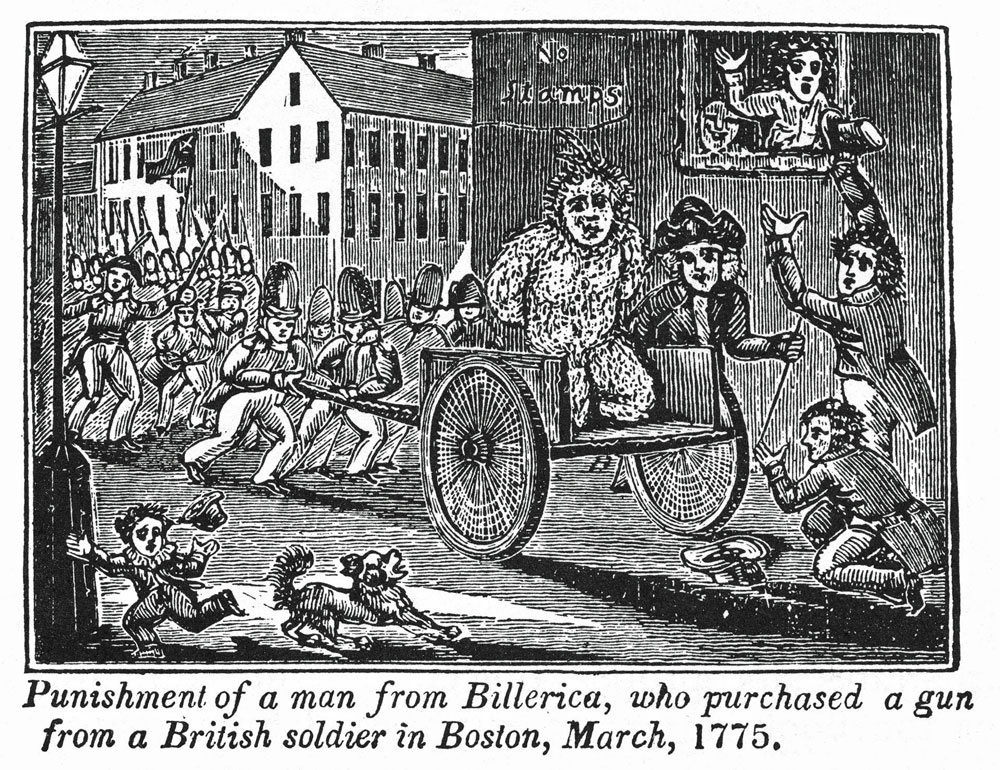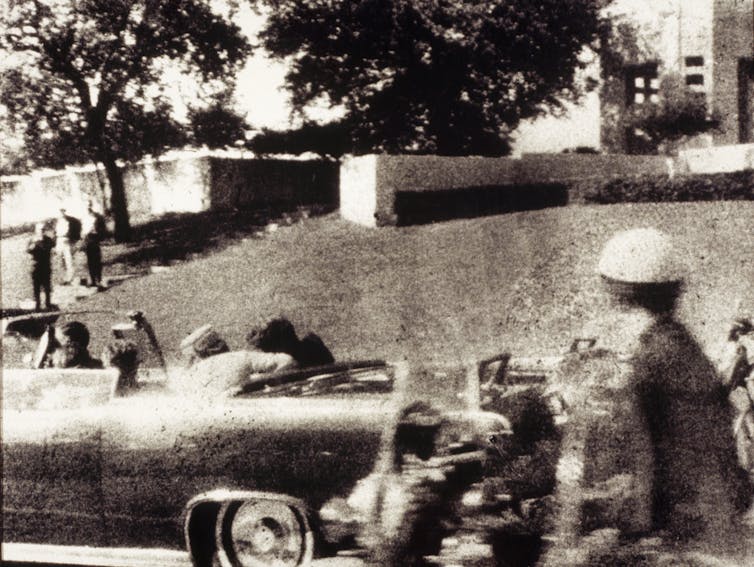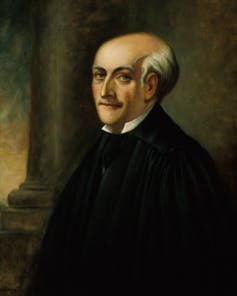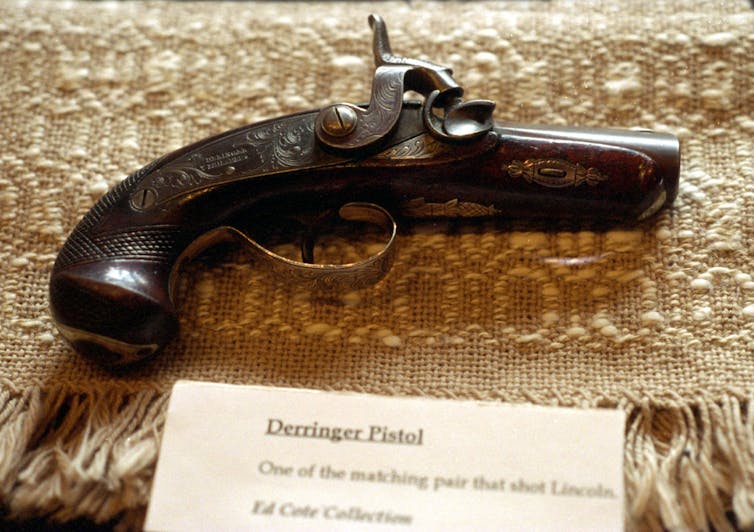
By Maurizio Valsania
The day after conservative activist Charlie Kirk was shot and killed while speaking at Utah Valley University, commentators repeated a familiar refrain: “This isn’t who we are as Americans.”
Others similarly weighed in. Whoopi Goldberg on “The View” declared that Americans solve political disagreements peacefully: “This is not the way we do it.”
Yet other awful episodes come immediately to mind: President John F. Kennedy was shot and killed on Nov. 22, 1963. More recently, on June 14, 2025, Melissa Hortman, speaker emerita of the Minnesota House of Representatives, was shot and killed at her home, along with her husband and their golden retriever.
As a historian of the early republic, I believe that seeing this violence in America as distinct “episodes” is wrong.
Instead, they reflect a recurrent pattern.
American politics has long personalized its violence. Time and again, history’s advance has been imagined to depend on silencing or destroying a single figure – the rival who becomes the ultimate, despicable foe.
Hence, to claim that such shootings betray “who we are” is to forget that the U.S. was founded upon – and has long been sustained by – this very form of political violence.

Bettman/Getty Images
Revolutionary violence as political theater
The years of the American Revolution were incubated in violence. One abominable practice used on political adversaries was tarring and feathering. It was a punishment imported from Europe and popularized by the Sons of Liberty in the late 1760s, Colonial activists who resisted British rule.
In seaport towns such as Boston and New York, mobs stripped political enemies, usually suspected loyalists – supporters of British rule – or officials representing the king, smeared them with hot tar, rolled them in feathers, and paraded them through the streets.
The effects on bodies were devastating. As the tar was peeled away, flesh came off in strips. People would survive the punishment, but they would carry the scars for the rest of their life.
By the late 1770s, the Revolution in what is known as the Middle Colonies had become a brutal civil war. In New York and New Jersey, patriot militias, loyalist partisans and British regulars raided across county lines, targeting farms and neighbors. When patriot forces captured loyalist irregulars – often called “Tories” or “refugees” – they frequently treated them not as prisoners of war but as traitors, executing them swiftly, usually by hanging.
In September 1779, six loyalists were caught near Hackensack, New Jersey. They were hanged without trial by patriot militia. Similarly, in October 1779, two suspected Tory spies captured in the Hudson Highlands were shot on the spot, their execution justified as punishment for treason.
To patriots, these killings were deterrence; to loyalists, they were murder. Either way, they were unmistakably political, eliminating enemies whose “crime” was allegiance to the wrong side.

US Supreme Court
Pistols at dawn: Dueling as politics
Even after independence, the workings of American politics remained grounded in a logic of violence toward adversaries.
For national leaders, the pistol duel was not just about honor. It normalized a political culture where gunfire itself was treated as part of the debate.
The most famous duel, of course, was Aaron Burr’s killing of Alexander Hamilton in 1804. But scores of lesser-known confrontations dotted the decade before it.
In 1798, Henry Brockholst Livingston – later a U.S. Supreme Court justice – killed James Jones in a duel. Far from discredited, he was deemed to have acted honorably. In the early republic, even homicide could be absorbed into politics when cloaked in ritual. Ironically, Livingston had survived an assassination attempt in 1785.
In 1802, another shameful spectacle unfolded: New York Democratic-Republicans DeWitt Clinton and John Swartwout faced off in Weehawken, New Jersey. They fired at least five rounds before their seconds intervened, leaving both men wounded. In this case, the clash had nothing to do with political principle; Clinton and Swartwout were Republicans. It was a patronage squabble that still erupted into gunfire, showing how normalized armed violence was in settling disputes.
Gun culture and its expansion

Bob Grieser/Los Angeles Times via Getty Images
It is tempting to dismiss political violence as a leftover from some “primitive” or “frontier” stage of American history, when politicians and their supporters supposedly lacked restraint or higher moral standards. But that is not the case.
From before the Revolution onward, physical punishment or even killing were ways to enforce belonging, to mark the boundary between insiders and outsiders, and to decide who had the right to govern.
Violence has never been a distortion in American politics. It has been one of its recurring features, not an aberration but a persistent force, destructive and yet oddly creative, producing new boundaries and new regimes.
The dynamic only deepened as gun ownership expanded. In the 19th century, industrial arms production and aggressive federal contracts put more weapons into circulation. The rituals of punishing those with the wrong allegiance now found expression in the mass-produced revolver and later in the automatic rifle.
These more modern firearms became not only practical tools of war, crime or self-defense but symbolic objects in their own right. They embodied authority, carried cultural meaning and gave their holders the sense that legitimacy itself could be claimed at the barrel of a gun.
That’s why the phrase “This isn’t who we are” rings false. Political violence has always been part of America’s story, not a passing anomaly, and not an episode.
To deny it is to leave Americans defenseless against it. Only by facing this history head-on can Americans begin to imagine a politics not defined by the gun.
![]()
Maurizio Valsania is Professor of American History at Turin University.





























Ray W. says
During a Thursday Texas luncheon, Supreme Court Justice Brett Kavanaugh stated that in his opinion a lack of civic education is a bigger threat to American democracy than is “political polarization.” He added that “no one person or group of people should have too much power in our system,” and that “… the framers recognized in a way that I think brilliant that preserving liberty requires separating the power.”
Make of this what you will.
JimboXYZ says
From the reads on the Charlie Kirk assassin, 5he 4.0 GPA kid that dropped out of college after scoring as well as he did for a scholarship. Kirk himself was a college dropout. Going back to the United Healthcare CEO assassin. That’s what the human race represents pretty much, outliers as extremists. I avoid these types, at a certain point in your life, you can spot the extremists & opportunists. Sit back & watch the show, choose your involvements. Risks involved for being as gung-ho as any of them were.
In other news, the FSU football player that was shot, in critical condition, they have 4 alleged suspects in that. The blur of violence is just that, different stories to get to the same results.
This is why we have police & criminals, good guys vs bad guys, gotta have both & victims, no sense in trying to make sense of it all. And that’s what one learns in decades of life, live your time out,be forgotten in a moment, a wikipedia webpage of a legacy for that legacy as a write up. Most will get at most a family legacy page.
Jane Gentile-Youd says
Shameful that an Italian, and not an American, knows in detail our violent history as a nation. Thank you sir for this enlightening information and wake up call to those who think the senseless killing of Charlie Kirk was an unusual un-American occurrence when in fact it has become almost a monthly event…. In my opinion we are a crumbling nation who has allowed the abuse of the true intent of the second amendment to the US Constitution. Very sad and very scary, We are getting worse, not better as I see it.
Skibum says
Jimbo, what I take away from your post, specifically the part about “This is why we have police & criminals, good guys vs bad guys, gotta have both & victims, no sense in trying to make sense of it all.” is a defeatist attitude. Sorry folks, there is nothing any of us can do about crime. What I know to be fact is that the Charlie Kirk killing is yet even more proof of what I have been saying, which is there is absolutely NO WAY to tell who is a good guy with a gun, and who is a very bad guy with a gun. Yet we continue to let all sorts of people buy and possess more and more and more guns at will, not knowing their character, their morality, their mental stability, or their purpose and motive for having guns.
What a horrible mess the 2nd Amendment has created in today’s society, in the 21st century America where we already have way too many kids who are isolated, bullied, fragile, unstable, etc. Far too many children AND adults in today’s electronic age spend more time alone in their house with their only social outlet being computerized social media on their phone or other device, and they do not experience interaction with other human beings for the most part in healthy ways like in decades past. It is too easy to be so distanced from reality, from healthy human interaction and socialization to where other people become mere objects on a screen in front of them, to be made fun of or envied, to ridicule, to harass, to threaten, and in many cases, to plan violence against.
Until human science has discovered a way to peer into a person’s brain, into their psych and tell if an individual is a danger to themself, to others and/or to society, we had better start being realist about the 2nd Amendment as a causal factor and implement common sense gun reform. We already know that when the assault weapon ban was implemented during President Clinton’s administration, it was effective and national statistics showed it’s worth. The ONLY reason it was allowed to expire without being renewed when Republicans were in control of Congress was due to the very powerful gun lobby and NRA, both of which have proven to not be any friend to law enforcement!
Both of those organizations have stood by and witnessed the ever increasing horror of mass school shootings in the U.S. over many, many years, and like a greedy step uncle, just rubbing their hands together, dollar signs in their greedy and conspiratorial eyes thinking yes, more money in our pockets as we trick the American public into buying more guns! More guns! Let’s all repeat over and over… go out and buy more guns, that is the answer!
NO, having more deadly firearms in a country where there are already more guns than citizens, and NO WAY to tell who is a good guy with a gun from a bad guy with a gun… is and always has been a recipe for disaster, and a very deadly lesson this country has yet to learn!
Pogo says
@Ray W
Irony has left the building.
Marlee says
The TOP -Down makes a huge difference:
President Donald Trump on Friday doubled down on blaming what he called the “radical left” for political violence in the United States after the killing of conservative activist Charlie Kirk.
PaulT says
Trump’s populist ‘speak your mind’ philosophy has opened the floodgates for political hatred which has polarized opinions. Admittedly this is not unique to the United States, hate speech an political violence are surging all over the world. But in this atmosphere, in a country where there are more guns than people and where firearms regulations are being relaxed rather than strengthened, it’s pretty much inevitable that guns instead of discussion are used to resolve real or imagined political disagreement.
Me says
Just because you disagree with an opposite political party doesn’t justify you attacking them verbally or physically.
We are now living in a country because of the current administration that they feel their justified to discriminate people of color, different religious or sexual beliefs.
We no longer have a government administration that is working for the benefit of its citizens health and safety, it is only about their personal gains. It promotes hate and violence on a daily basis and accuse others without proving the actual truth or facts.
People no longer trust our government because of their daily actions of treating the people like they are the enemy and witness the careless spending that only benefits them and not the people.
I respect our American Farmers and their Families who work hard in the fields to provide food on our tables as well as the immigrants that work hard in the fields to pick it and now they are being let down by our own government.
We are witnessing an administration that is imposing tariffs that are nothing more than increase of taxes to everyone living in this country to give more money to those that already have plenty.
What is deeply sad is the flower days of spreading love in our country has disappeared because of greed in our own government.